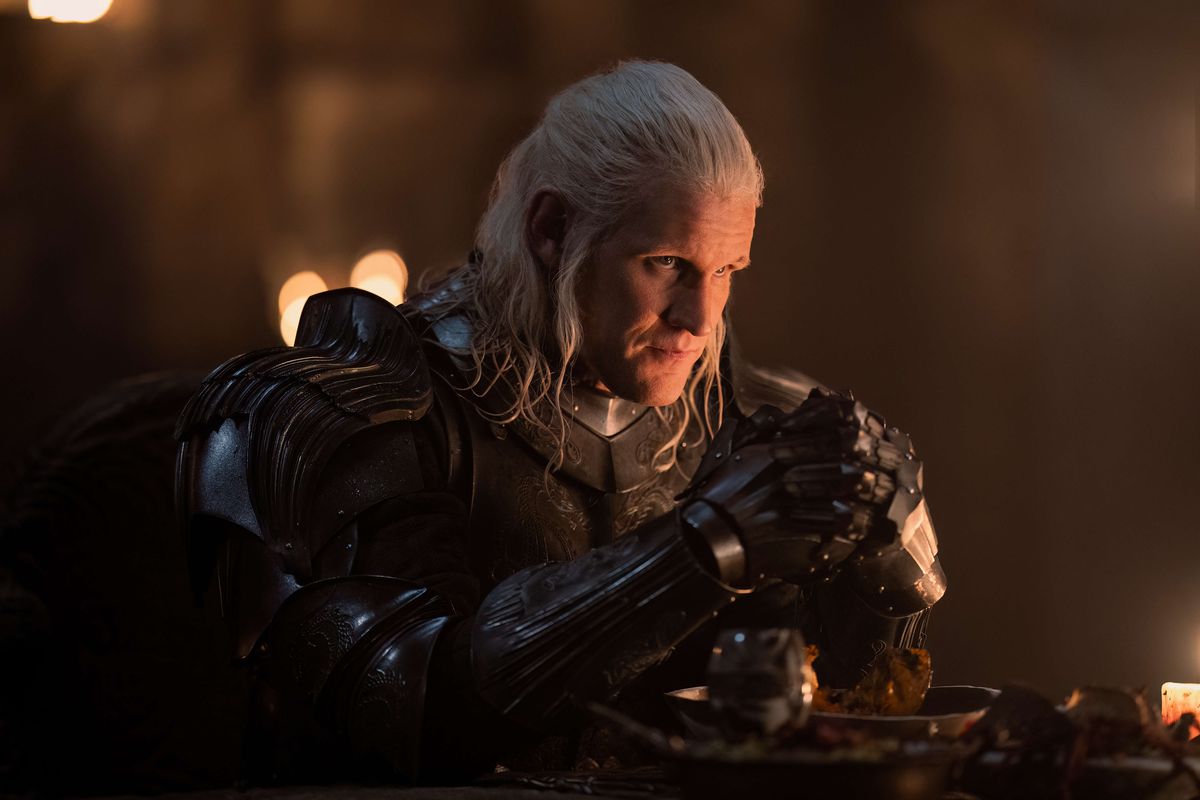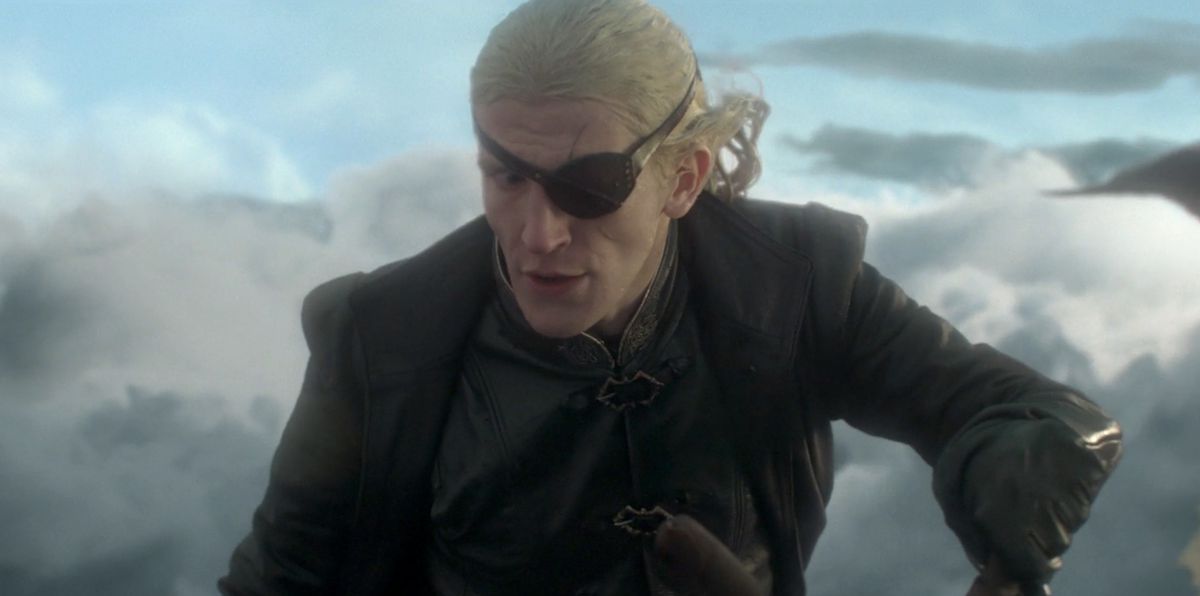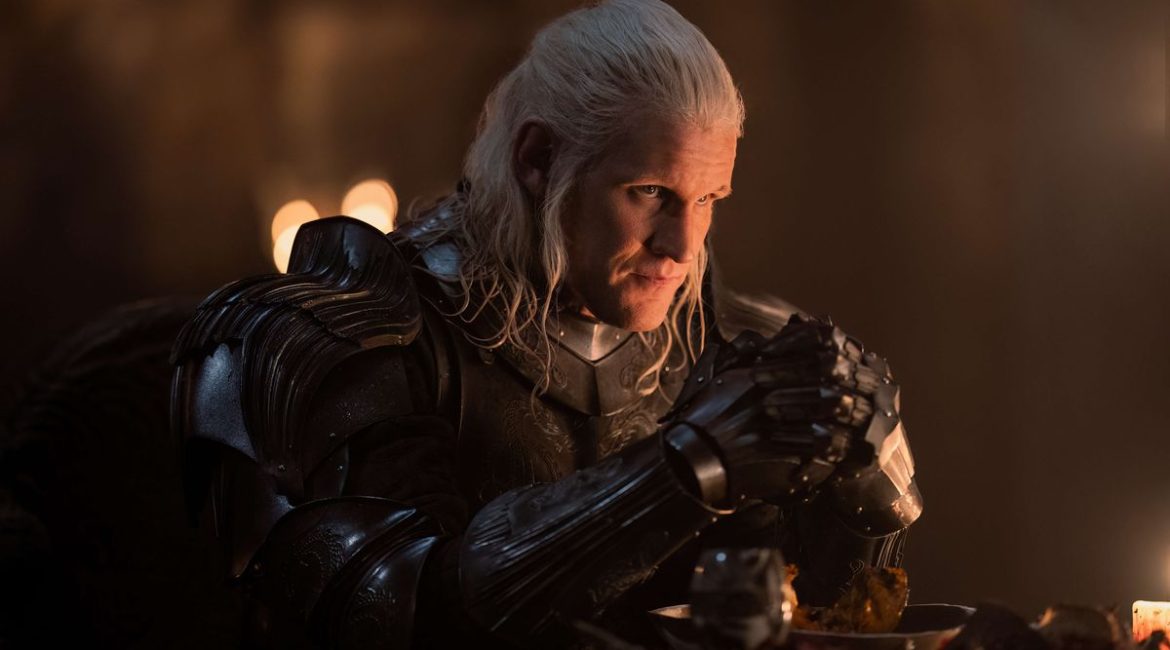House of the Dragon has always been about how the smallest decisions can have unforeseen consequences, but rarely has that theme been as clear as it was in the season 2 premiere. In the show’s first episode back from break, Daemon Targaryen decides to take matters into his own hands with a plot that probably could have used a little more planning (classic Daemon). But while the book’s version of these events is fittingly brutal, the show’s approach is quieter, more human, and arguably a little more horrifying.
[Ed. note: This story contains spoilers for House of the Dragon season 2 episode 1.]
In the book version of the story, the assassins at the center of this episode’s action are named Blood and Cheese. And while they don’t get these silly names in the show, they do get a level of horror and humanity that the book doesn’t have time to afford them. The book versions are boogeymen, terrifying lowlifes who kill a handmaiden and a handful of guards, and seem gleefully cruel in the way they slay Prince Jaehaerys — tricking Queen Helaena into first naming her younger son for death before killing her firstborn instead.

And while those versions of the characters are significantly more stomach-churning, the show’s approach feels much more appropriate thematically. Rather than the murderous wraiths of the book, who slip into the queen mother’s chambers, leaving a pile of bodies behind them, House of the Dragon’s assassins simply move through the castle unnoticed, a pair of hired hands of low status and low intelligence, functionally invisible to the royalty who own the halls. When they reach difficult junctures in the castle’s tunnels, or difficult choices, they panic and bicker and bumble. The Blood and Cheese of the show aren’t gifted killers, they’re just amoral men sent to do something too disgusting for anyone to have imagined possible.
Adding to all of this is the sense of desperation that the pair’s meeting with Daemon seems to have instilled in them. According to showrunner Ryan Condal, the team wanted the set-piece to play out like a “heist gone wrong,” and as the scene stretches on, we can feel their worry set in, making them more reckless, cruel, and hurried in the process. While the show cleverly leaves Daemon’s final words a mystery, the pair’s fear over what Daemon will do to them if they fail is palpable.
“We know who Daemon is; I don’t think he necessarily directly ordered the death of a child,” Condal said in a roundtable. “But he clearly said, If it’s not Aemond, don’t leave the castle empty-handed
So when they can’t find their initial target, it makes sense that these two decide to settle for the first royal son they can find. It’s the kind of hurried decision that only these two brutes could make. And, in a scene that’s both grotesque and funny, the two assassins realize that they can’t even tell the two children asleep in their beds apart, and have to riddle their way through Helaena’s answer. The whole thing is a ridiculous farce from two people barely competent enough to pull any of this off.

All of this builds into the show’s fantastic slippery slope of assumptions. While the audience may know that Aemond’s slaying of Lucerys Velaryon in the skies over Storm’s End was an accidental consequence of not understanding his own dragon’s power, for Daemon, it seems like an act of clear and predetermined aggression. He probably didn’t expect the assassins to come away with the head of a toddler prince, but he thinks letting two assassins loose in the Red Keep with less-than-clear orders is nothing more than a slight escalation.
These are the kind of spiraling, misinformed decisions that House of the Dragon builds its beautiful, flawed, and deeply human history out of. Sure, the show is elevated to the heights of fantasy, but it’s still fundamentally a story of broken, furious, and faulty characters making rash decisions and then dealing with the consequences — those consequences just often happen to involve dragons and war.
All of this is true to Martin’s vision, of course. It’s the same kind of storytelling he employs constantly in A Song of Ice and Fire, but while the original Game of Thrones series frequently had to cut down on the humanness of its story simply by virtue of its massive scale, it’s constantly thrilling to see how effectively House of the Dragon goes the opposite direction, expanding on Martin’s written history in Fire & Blood and turning these quasi-mythical historical figures into flesh-and-blood people and incredible characters, up to and including the lowlife assassins who don’t even need their silly little names.
